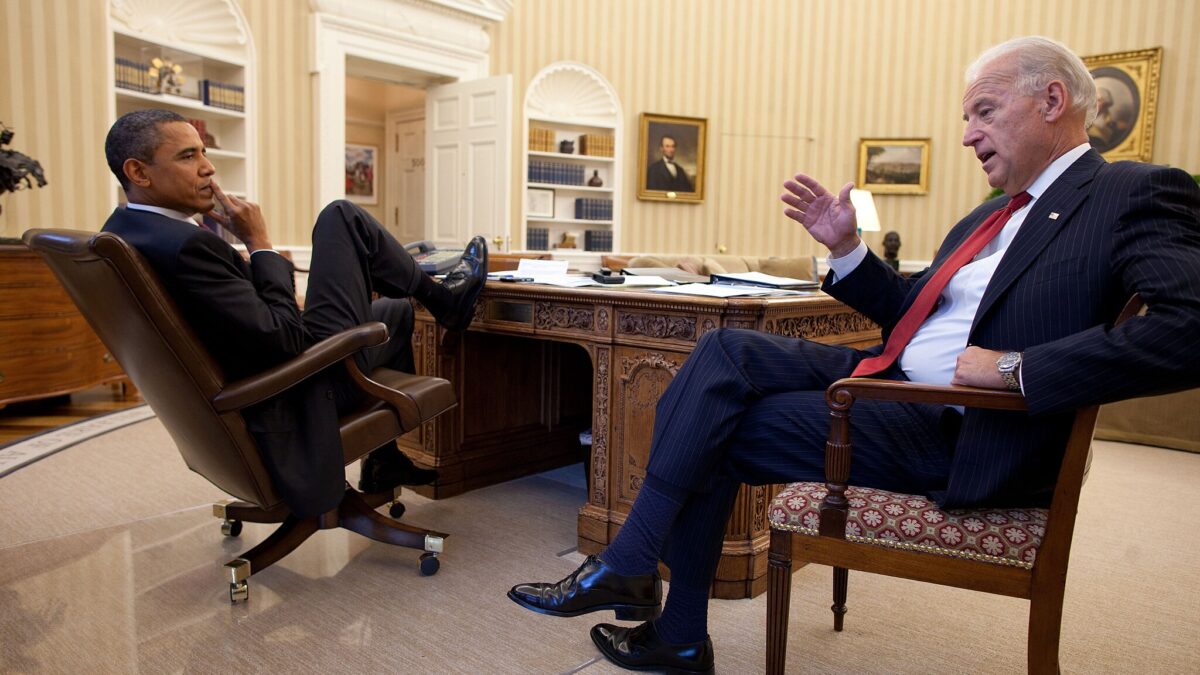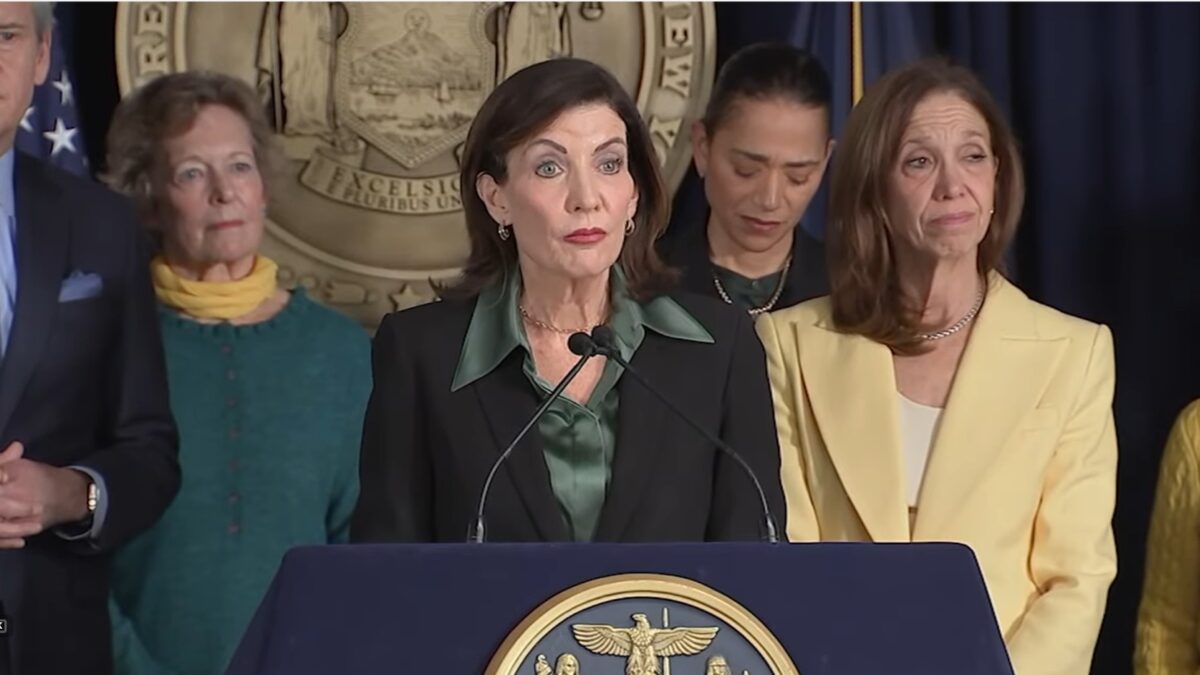Last week the Washington Post reported that Algeria gave half a million dollars to Bill and Hillary Clinton’s foundation while at the same time lobbying Hillary Clinton at the State Department. At a forum in Miami this weekend, Bill Clinton defended taking money from Algeria and other countries while his wife held a high-level government position. From the Miami Herald:
“The U.A.E. gave us money,” he said, referring to the United Arab Emirates. “Do we agree with everything they do? No, but they help us fight ISIS,” referring to the so-called Islamic State. He characterized the donations as coming from “friends” that had previously contributed to the foundation and were allowed to keep doing so under a 2008 ethics agreement with the Obama administration. But that was not the case with a $500,000 contribution from the Algerian government. “My theory about this is, disclose everything and let people make their judgments,” Clinton said.
Oh, that’s right. The Algerian donation was solicited and received without the Obama administration’s approval. So any disclosure we’re discussing is after-the-fact.
One interesting way to look at the ethics of such a donation is how the U.S. government handles donations to foreign charities by U.S. entities lobbying government officials. Remember this part of the Post story:
The money was given to assist with earthquake relief in Haiti, the foundation said. At the time, Algeria, which has sought a closer relationship with Washington, was spending heavily to lobby the State Department on human rights issues.
If the money was given for the stated purpose of earthquake relief, does that make the donation clean even though Algeria sought something from Hillary Clinton’s agency?
In 2011 and 2012, the Obama administration’s Securities and Exchange Commission levied large penalties against U.S. pharmaceutical companies for violating the Foreign Corrupt Practices Act. These included Johnson & Johnson, Pfizer, and Eli Lilly and Company. Among the charges was making donations to a charitable foundation in Poland.
That charitable foundation was run by an official with a regional health ministry who had the authority to make pharmaceutical purchasing decisions. The charitable foundation was legitimate and the foundation’s work was for a good cause. But the U.S. government found that the donation still had a corrupt purpose.
Again, the Clinton foundation says the money was given for a good cause — earthquake relief in Haiti. At least when the shoe is on the other foot and U.S. companies are donating to foreign charities, the U.S. government does not hold the view that such donations toward charitable purposes can not be tainted. In fact, while Eli Lilly never admitted wrongdoing, those donations to a Polish charity cost them a pretty penny:
“On 20 December 2012, the SEC charged Eli Lilly with violations of the anti-bribery, books and records and internal controls provisions of the FCPA. The Company neither admitted nor denied the allegations in the SEC’s complaint, which included … making donations to a Polish charity founded and administered by a Polish regional health director, in order to secure an ensured market position for the Company’s pharmaceutical products. Eli Lilly agreed to pay disgorgement, prejudgment interest and penalties totaling USD 29,398,734.”
Earlier this month the head of the SEC’s enforcement division, Andrew Ceresney, discussed the Eli Lilly and “bribes disguised as charitable contributions“:
As you might know, the FCPA prohibits giving “anything of value” to a foreign official to induce an official action to obtain or retain business, and we take an expansive view of the phrase “anything of value.” The phrase clearly captures more than just cash bribes, and Eli Lilly is not the only matter where we have brought an action arising out of charitable contributions.
He noted an instance when a medical technology company’s subsidiary made a donation to a university to fund a laboratory that a doctor wanted. That doctor gave business to the medical technology company. And, like Eli Lilly, a subsidiary of Schering-Plough paid $76,000 to that Polish charitable foundation. That foundation’s head also directed a governmental body that funded pharm purchases. Schering-Plough had to pay a huge fine.
The lesson is that bribes come in many shapes and sizes, and those made under the guise of charitable giving are of particular risk in the pharmaceutical industry. So it is critical that we carefully scrutinize a wide range of unfair benefits to foreign officials when assessing compliance with the FCPA — whether it is cash, gifts, travel, entertainment, or charitable contributions. We will continue to pursue a broad interpretation of the FCPA that addresses bribery in all forms.
Other anti-corruption practitioners note that it’s a major red flag when you see a single, isolated charitable donation of the size that Algeria gave to the Clinton Foundation. Such investigators say the first thing you look for is whether the giver had any business before the government official, which clearly was the case with Algeria, which was lobbying at the time for more favorable foreign policy treatment.
If these facts were in the private sector, the Department of Justice would be all over the matter. The Clintons have had previous problems with raising funds from foreign entities seeking to influence domestic policy.
One other thing to note is that the FCPA defines a “government official” to include not just foreign officials, candidates for office, and parties, but also any other recipient if the payment ultimately goes to a foreign official, candidate or party. By this broad definition, all-but-officially-announced Hillary Clinton would more than fit the definition.
Of course, the U.S. Constitution and various laws already ban such payments to Hillary Clinton.
But it would be weird if we held U.S. companies to far stricter standards regarding bribery than we did our own secretary of state.









